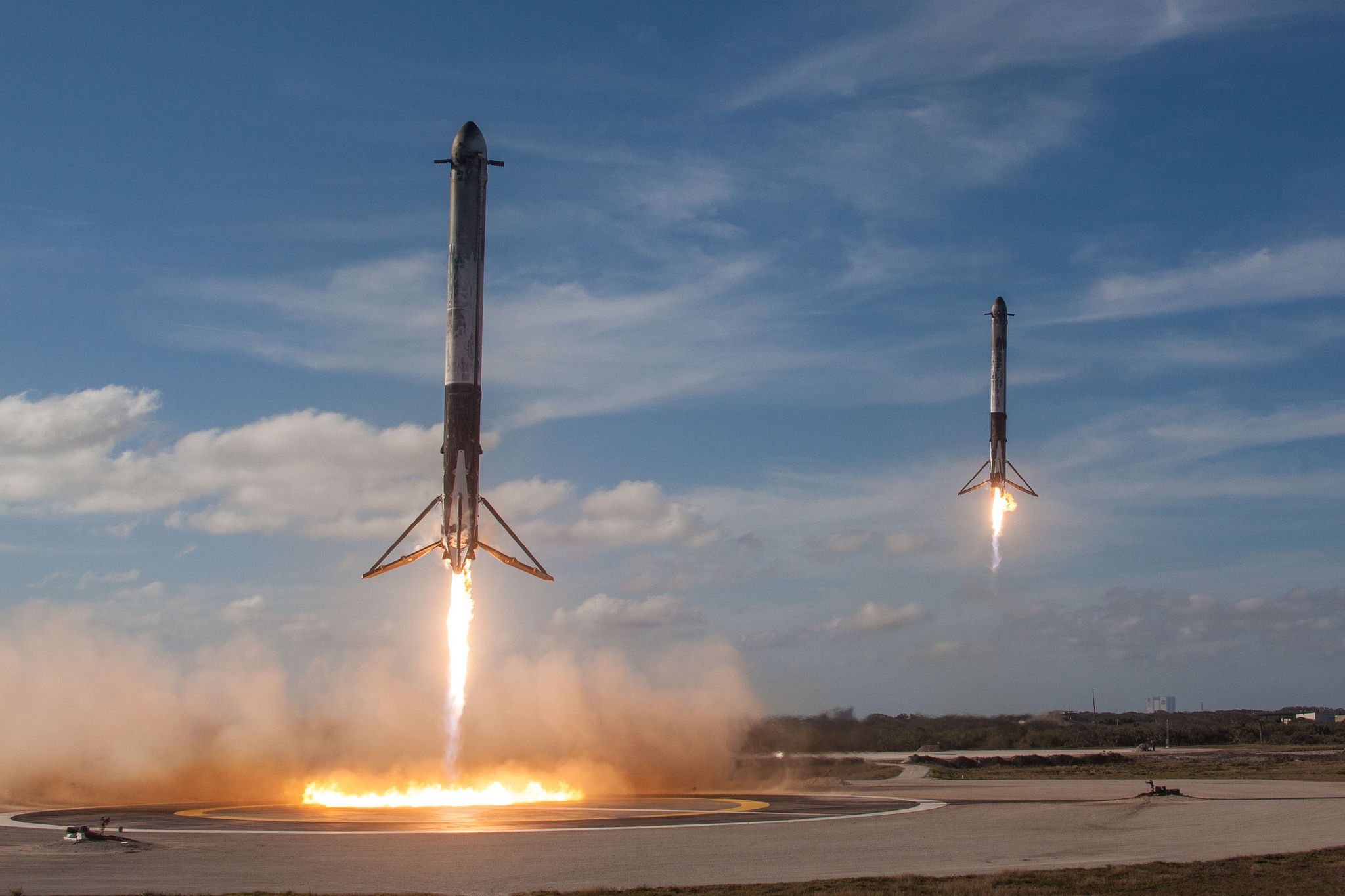
Updated | Elon Musk wants to create a constellation of thousands of satellites to beam internet down to Earth.
Today, he got one step closer to that goal as SpaceX launched two prototype Starlink satellites.
Due to launch yesterday, the lift-off on a Falcon 9 rocket was delayed by strong upper winds. Instead, the rocket launched from Vandenberg Air Base Thursday morning at 9.17 a.m. ET.
Musk confirmed on Twitter the two Starlink satellites "Tintin A & B" were deployed and communicating with Earth stations.
First two Starlink demo satellites, called Tintin A & B, deployed and communicating to Earth stations pic.twitter.com/TfI53wHEtz
— Elon Musk (@elonmusk) February 22, 2018
You can watch a video recording of the launch below:
Credit: SpaceX
Starlink could one day beam high-speed internet worldwide using an orbiting network of satellites. The plan has been in the public eye since at least 2014, when Musk tweeted: "SpaceX is still in the early stages of developing advanced micro-satellites operating in large formations."
SpaceX is still in the early stages of developing advanced micro-satellites operating in large formations. Announcement in 2 to 3 months.
— Elon Musk (@elonmusk) November 11, 2014
He confirmed the purpose of these satellites in Twitter comments, saying the company's internet would be "unfettered certainly and at a very low cost."
Read more: Spacex Falcon Heavy: Elon Musk's Tesla Roadster Is on a Collision Course With Earth—or Venus
Just yesterday, Musk wrote the Starlink system will serve the "least served." This name, he added, was inspired by John Green's novel, The Fault in Our Stars.
Today’s Falcon launch carries 2 SpaceX test satellites for global broadband. If successful, Starlink constellation will serve least served.
— Elon Musk (@elonmusk) February 21, 2018
According to a Business Insider analysis of a SpaceX Federal Communications Commission filing, the first 800 satellites deployed could provide broadband coverage worldwide.
With thousands more satellites planned, Starlink will eventually increase bandwidth capacity and availability around the equator and at the North and South Pole.
Read more: Spacex Starlink: Elon Musk Could Be Running Your Internet
SpaceX has received support from Federal Communications Commission chairman Ajit Pai. He recently stated: "Satellite technology can help reach Americans who live in rural or hard-to-serve places where fiber optic cables and cell towers do not reach."
The Starlink prototypes piggy-backed on the launch of PAZ, a Spanish radar-imaging satellite.
This was the second outing for the Falcon 9's first stage, which launched the Earth observation satellite FORMOSAT-5 for Taiwan's National Space Organization last August.
It's not all good news for SpaceX, however. Shortly before the PAZ launch, Musk tweeted the company would try to catch the rocket's nosecone. But this payload fairing missed the landing by several hundred feet and landed in the ocean.
This article has been updated to reflect the success of the Paz launch.
Uncommon Knowledge
Newsweek is committed to challenging conventional wisdom and finding connections in the search for common ground.
Newsweek is committed to challenging conventional wisdom and finding connections in the search for common ground.
About the writer
Katherine Hignett is a reporter based in London. She currently covers current affairs, health and science. Prior to joining Newsweek ... Read more
To read how Newsweek uses AI as a newsroom tool, Click here.








